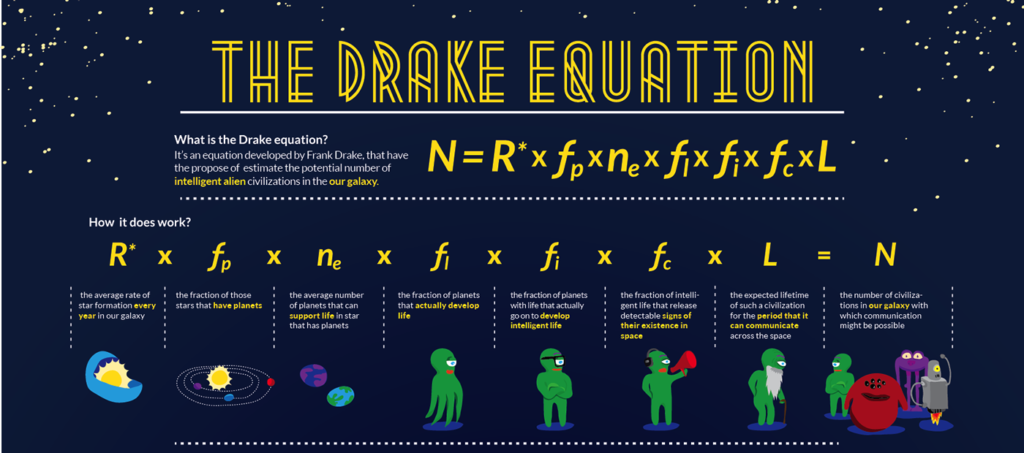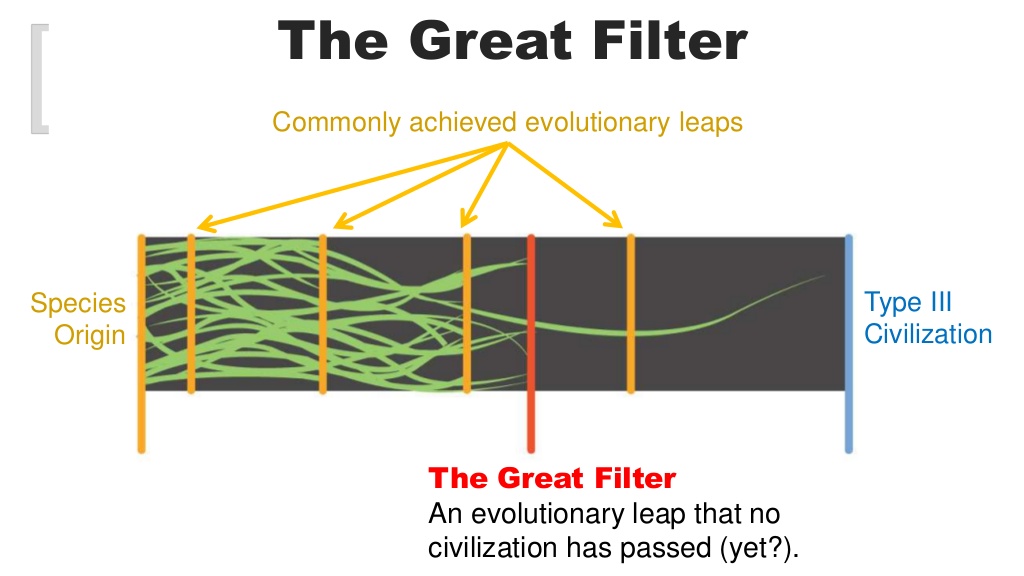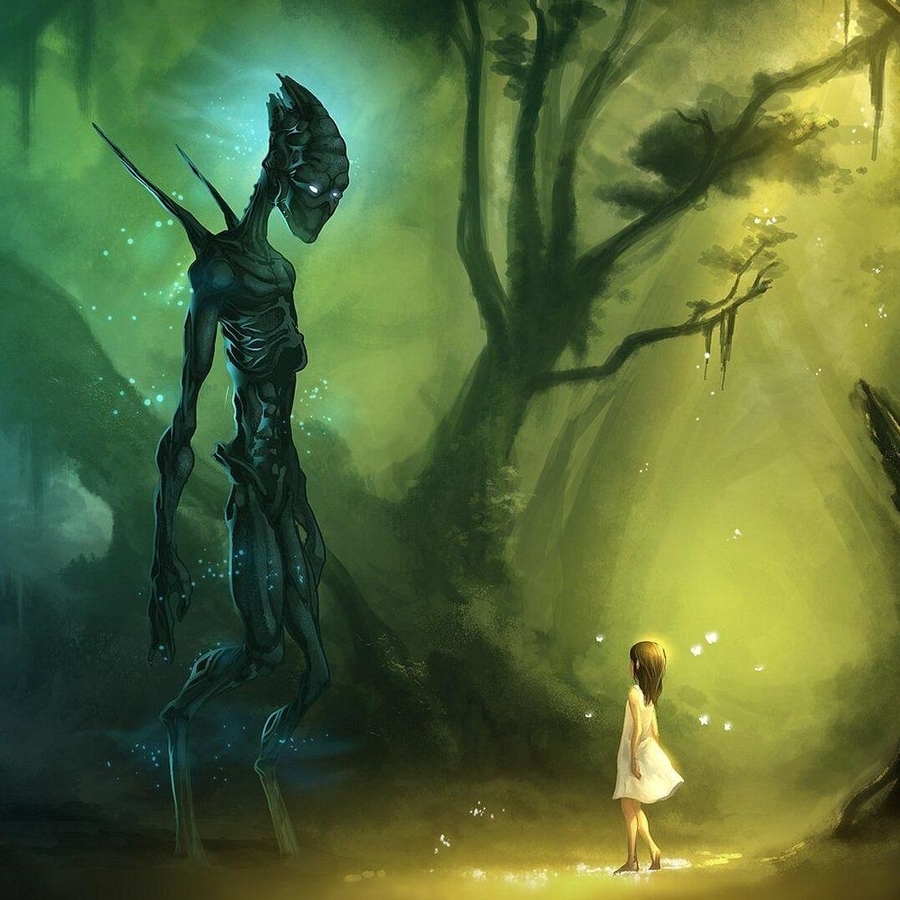A question has haunted humanity for aeons. The seemingly simple question does not admit any simple explanations and demands the extremums of the human imagination to answer. Why is it that in all these centuries, has there been not even the slightest case of Extra-Terrestrial contact? In this vast universe, billions of light-years wide, we are nothing more than an insignificant speck of dust, but still, it seems as if we are special, as if we are the one and only planet where life exists, and none of the reasoning explaining the same makes much sense. This question has plagued the scientific society, but even after centuries of head-scratching, we still have not reached a reasonable conclusion. But what if alien contact actually meant, wait for it, doom?
The Paradox.
In the summer of 1950 at Los Alamos National Laboratory in New Mexico, three geniuses sat on a lunch table having a casual discussion, and somehow the conversation managed to drift towards the rumours of UFO sightings when suddenly one of them exclaimed: “Where are they!?”. One of them, Herbert York, later recalls, “followed up with a series of calculations on the probability of earthlike planets, the probability of life given an earth, the probability of humans given life, the likely rise and duration of high technology, and so on. He concluded on the basis of such calculations that we ought to have been visited long ago and many times over.” But we do know that there haven’t been any such incidents, not a single one recorded, which clearly gave rise to a paradox, today widely known as the Fermi Paradox, after the genius who penned it, Enrico Fermi.

[Image: wallpapercan]
Speculations.
In 1961, Frank Drake formulated an equation to determine the number of technologically advanced civilizations in a given galaxy. The equation goes as N = R* fp ne fl fi fc L, where R* is the rate of formation of stars in a galaxy, fp is the fraction of stars that develop a planetary system, ne is the number of planets per system, fl is the fraction of planets in which life appears, fi represents the fraction of intelligent life forming, fc is the fraction of such civilisations that reach technological advancements capable of sending extraterrestrial signals and L is the length of the time interval for which they send such signals. The equation looks quite promising, but it faces a fundamental problem, the last four variables in the equation are entirely unknown, and hence the equation is entirely subjected to speculations alone.

There have been both optimistic and pessimistic calculations of N, based on pure speculatory deductions, with N ranging from some millions to some mere fractions. The optimist group argues in support of the Fermi paradox, stating that the numbers should mean that the visit should have taken place centuries ago, while the pessimist group shows that the Fermi Paradox is nothing but a hoax and that the numbers clearly indicate that life itself is very rare. But all these are mere hunches and are not enough to actually prove or disprove the Fermi Paradox.
A Possible Explanation.
There have been innumerous attempts at resolving the Fermi paradox, to explain the seemingly unexplainable lack of Extra-terrestrial communication, or to be better put, to explain the deficiency of intelligent life in the entire universe, and one of the scary but promising theory seems to be the Great Filter.
Consider the evolutionary path of intelligent life, which would look somewhat like this,
- The right star system (including organics and potentially habitable planets)
- Reproductive molecules (e.g. RNA)
- Simple (prokaryotic) single-cell life
- Complex (eukaryotic) single-cell life
- Sexual reproduction
- Multi-cell life
- Tool-using animals with intelligence
- A civilization advancing toward colonization explosion, i.e colonizing other planets and star systems (where we are now)
- Colonization explosion
The great filter hypothesis places its bet on the hunch that one of these steps (if the list is supposedly complete) must be highly improbable, thus preventing most of the life forms from evolving into higher, more intelligent beings.

There are a lot many speculations about which of the step might be the great filter, some argue that the birth of multicellular life is the most improbable one, while others argue that intelligence is a rare feat, and thus the formation of intelligent life is the highly improbable step. All these are just hypothesis’ and there is no denying the fact that the probability of step 9 being the great filter is also non zero.
Why a blip would mean bad news?
Imagine waking up tomorrow to the headlines “History is written: The first contact of humanity with aliens”, or maybe “ They are finally here, the first extraterrestrial contact that humanity has forelooked for decades”. This would be the worst news one would ever hear. This is because the contact could mean these possibilities. Either the newly contacted alien life is the same as us, implying that all the steps until step 8 were not improbable, meaning that the great filter is ahead of us and both of us will have to face it and test our lucks, or even worse, it could mean that they have already reached step 9, which would make the possibility of us making it to step 9 really low.
In any case, it is really bad news if we get a blip in our sensors, it would mean that we are destined to face extinction in one way or the other, thus fulfilling the great filter.

And you are thinking it couldn’t get worse, well it could, and it is actually. The scenario of all the space research obtaining something as insignificant as microscopic life on Mars would mean bad luck too. Since such a discovery would mean that none of the steps from step 2 to 8 is not highly improbable, meaning that the great filter, without any doubt, lies ahead of us and not behind us. Humans are again doomed, with our extinction already predicted by such a sighting.
Thus if the great filter hypothesis is correct, we need to be thankful for not receiving any signals from out there, and even for not getting signs of organic life on Mars or any other planet. The day of contact is that dreadful day when we should implicitly assume that we might be doomed in the near future and that it is possible that any day could be our last. But before fretting, one needs to consider the probability of the great filter hypothesis being correct, since there are innumerous theories lurking out there making their own attempts to explain this unlikely silence that has haunted us ever since.

Image: geeksaresexy]




It’s actually very complicated in this busy life to listen news on Television, thus I just use web for that purpose, and take the newest news.
[…] why this theory might be true, and let me talk about a few of those.First of all, there is the Fermi paradox, there is no reason for us to be alone in this vast universe, with an infinite number of possible […]
I am actually grateful to the owner of this website who has shared this wonderful post at at this time.
Here is my web-site … crazy games